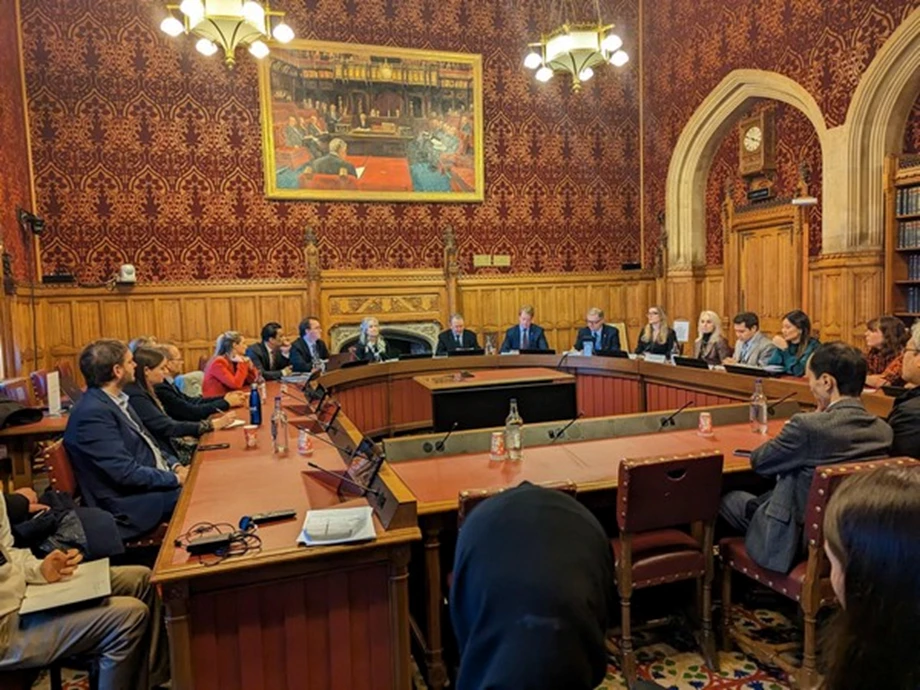Hazara Committee in UK released a report that reveals the atrocities faced by the community in Pakistan. “Today, we launched the All-Party Parliamentary Group for Hazaras, the Hazara Inquiry Reports and the joint recommendation from the Hazara Inquiry,” read Hazara Committee in UK Facebook post.
The situation of the Hazara in Pakistan is dire and continues to be exacerbated by the critical situation in Afghanistan. The Hazara in Pakistan are subjected to discrimination, persecution and social exclusion that have a profound effect on the community and its future. “Today’s session was chaired by Lord Alton and the speakers included: Baroness Kennedy, Brendan O’Hara, Paul Bristow, Lynne O’Donnell, Ewelina Ochab, Homira Rezai, Bismillah Alizada and James Ekin,” read the Facebook post of Hazara Committee in UK.
Some of the risk factors of atrocity crimes are clearly present, while further evidence is needed to provide a comprehensive analysis of the situation. “Thank you all for coming to support the Hazara cause and raise your voice to #StopHazaraGenocide,” added the Facebook post.
Despite the limited evidence available, it is clear that the community requires assistance, and assistance that addresses the source of the problems encountered, rather than excludes the community from society even more. The Hazara have suffered from extensive persecution and discrimination in Pakistan, which has been compounded by the August 2021 Taliban takeover in neighbouring Afghanistan, read The Hazara Inquiry report.
The community is frequently targeted by militants with the most recent mass killing taking place in January 2021, when 11 coal miners belonging to the Hazara community were killed near Quetta. The persecution of the Hazara in Pakistan is believed to have intensified during General Zia-ul-Haq’s tenure as president from the late 1970s to the 1980s, which was marked by a rise in violent sectarianism. Persecution of the Hazara in Pakistan occurs within the country and at its border.
In describing their living conditions, one interviewed Hazara said, “We are living in two prisons. Our men and young can’t go outside. If they go, they will be killed. Our graveyards are full of young men with barely any space left… We are tired of carrying their coffins. Every year we dig mass graves.” Following the killings of the coal miners, and in protest of the killings and the ongoing persecution, the community staged a protest, refusing to bury the bodies until Prime Minister Imran Khan came to meet them in person. In response, he ‘told them to refrain from “blackmailing the premier”, even as he denounced the attack.
The Hazara face persecution in Pakistan, ranging from, ‘facing enormous difficulties in exercising their fundamental rights to having limited social opportunities due to fear of violence, read Hazara Inquiry report.’ Human Rights Watch reports that the Hazara have ghettoization in the Hazara neighbourhoods of Quetta’s Marriabad and Hazara Town.
The situation of the Hazara in Pakistan only deteriorated as the Hazara from Afghanistan began to immense barriers and discrimination. Some paid and waited for days to cross safely. Those with official documentation were frequently turned away or assaulted. Many have been deported back to Afghanistan to face unknown fates upon their arrival, added the report. To escape the growing violence against the Hazara, especially in the Quetta region of Pakistan where the Hazara Democratic Party estimated that some 3,000 Hazara have been killed due to sectarian violence, some Hazara youth have taken the decision to attempt to flee to safety in Europe or Australia. This perilous journey leaves them particularly vulnerable.
The Hazara are subjected to widespread attacks in there has been no independent inquiry into the situation that could help to identify the true nature and scale of the situation. Indeed, Fatema Atif, human in her oral testimony that the true numbers of those killed in Quetta, whether in bombings or those fleeing to other countries, are unknown, added the report. Furthermore, Fatima Atif raised the issue that mainstream media does not appropriately cover attacks against Hazara and their general situation in Pakistan and Afghanistan. However, the reported numbers run into hundreds and thousands.

